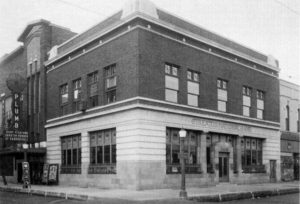
Streator, first called Hardscrabble, and then Unionville, was christened with its current name in 1868 when the Vermillion Coal Company acquired mining rights to large tracts of land along the Vermillion River near the boundary of LaSalle and Livingston Counties. The company’s on-site manager, Colonel Ralph Plumb, became the town’s founder, which meant the advancement of the town and the affairs of the Vermillion Coal Company were intertwined for many years. Plumb named the new city after the company’s president and principal financier—Worthy Streator, of Cleveland, Ohio.
Ralph Plumb spent the last 35 years of his life in Streator, and is buried in Streator’s Riverview Cemetery. He is credited with bringing railroads to the city, making the city a center of industry and manufacturing (especially glass production), having the vision to dedicate a four-square block City Park in the center of town, securing funding for a Carnegie library and many other civic advancements.
Late in the 19th Century, the Vermillion Coal Company was merged with other coal companies and its holdings transferred to a new entity, the Chicago, Wilmington and Vermillion Coal Company. In the early years of the 20th Century, it became increasingly difficult for coal companies in northern Illinois to keep pace with mine owners elsewhere because the coal seams were not sufficiently thick to justify the installation of modern mining machinery. The continued production of coal by hand gradually became too expensive to sustain, as the unit cost of local coal could not compete with larger coal mining operators in other parts of the country.
Coal, railroads and close proximity to high quality silica sand deposits led Streator to its second economic driver—glass production. Michael Owens pioneered his new glass bottle manufacturing practices in Streator; three glass companies called Streator home in the early 20th century, and at its peak nearly 4000 people were employed in producing glass products in Streator. Streator was once proclaimed the “Glass Capital of the World.” Today, one of these glass production facilities (Owens-Illinois) is still in business, producing more volume than ever before—but with less than one-tenth the original workforce, due to automation.
Streator has always been an industrial and manufacturing town. At different times the city hosted furniture production, automobile assembly, garment works, beer, paper and flour milling, brick and clay tile manufacturing, rail car assembly and repair, fertilizer production, Styrofoam fabrication, and many other industries. As the share of local employment in the glass business declined, Streator diversified its employment base and today is home to customized truck fabrication, food production, tube extruding, trailer assembly, automotive lift manufacturing and an array of other manufactured products ranging from snow plows, salt spreaders, pipe insulation components, railroad maintenance machines, among others. The city is also home to several large service-based employers: U.S. Foods, Heritage Health, two call centers and a dozen trucking and transportation logistics companies.
Click Advertiser ♥
Your Advertisment here $25 per month

